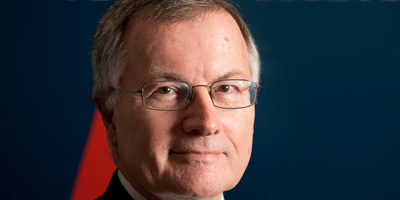Industry funds to PE managers: ‘just talk to us’
The best-performing asset class for the $35 billion Hostplus industry fund last year was private equity, Peter Collins, a trustee director, told a delighted audience of, mainly, private equity managers at the newly named Australian Investment Council dinner in Sydney last week.
There was a record attendance of nearly 500 at the dinner, held in conjunction with the annual AVCJ conference for private equity (PE) and venture capital managers and clients. But Collins was probably the only big super fund representative there. And there-in lies the rub.
The Australian Investment Council is the new name for AVCAL, a 20-year-old association representing that sector of the industry (see separate report this edition). Collins was questioned on the commitment to Australian PE by industry funds and their tendency to appoint foreign PE managers ahead of the home-grown ones.
The suggestion is that as industry funds get even bigger, helped by the likelihood of more mergers, they will look overseas more than they do now because local managers are unable to accept the size of cheques the funds want to write.
Collins, a former NSW Liberal minister who is also the deputy chair of Industry Super Australia, said: “We have a preference for Australian investments but if there are better returns offshore then we are obliged to pursue them… We have reached a scale which was never imagined. It will never downscale.”
(This misses the point slightly. There have been several instances of big buyouts of Australian companies by US PE managers, which were very successful for investors, including some Australian investors, ahead of re-listings supported by Australian retail investors, which were very unsuccessful.)
Collins said that by the middle of last year industry funds became the biggest segment of the super fund market (barring SMSFs), passing retail and public sector funds. “In about five years industry funds will be worth 36 per cent of the economic growth of the country,” he said.
Asked by MC Deborah Knight, a television presenter, how a “died-in-the-wool Liberal” such as him could end up in the industry fund movement, he said: “I’ve done my share of hand-to-hand fighting with the unions as a minister in the [NSW] Greiner and Fahey governments but one of the things that Keating and the ACTU got right is the Superannuation Guarantee and universal super. In politics, if the other side does something right you should recognise it. I’ve lost some friends over it.”
PE and venture managers do have some legitimate gripes against big funds, not just those funds’ propensity to look offshore for managers. For instance, it takes industry funds a notoriously long period of time to make a decision on a new manager or strategy. And the fund executives are not easy to get to see for a sales pitch.
These two issues are more acute for PE and venture managers because they tend to not have big sales departments and lots of relationship managers, unlike many traditional fund managers.
And then there is the issue of the PE fund closures, which perhaps the managers should look to adapt to suit industry funds. A PE manager may, say, keep a fund open for only a few months, or less, which doesn’t suit a big super fund’s committee system and schedule for consideration.
Some PE managers have given up on big super funds to concentrate on the smaller family office and high-net-worth market for asset gathering. Family offices, though a lot smaller, tend to make decisions more quickly once trust is developed with the manager. They are as at least as adventurous as super funds and less likely to haggle on fees.
Collins said that the two groups – industry funds and PE managers – should have better dialogue. “Just talk to us,” he said. A start would be for them to better co-ordinate their annual conferences. The AVCAL conference, this year to take place September 11-13, traditionally is very close to or sometimes overlaps the AIST’s ASI conference, this year taking place in Hobart September 3-5. The ASI conference gets about 350 attendees including the top industry fund investment professionals. The AVCAL conference gets about 500 including the top PE and venture managers.
Back at Hostplus, the fund has about 10 per cent of its portfolio invested in infrastructure and 8 per cent in PE. Of the PE component, 12 per cent was venture, Collins said.
“We [industry funds] have spent almost our entire existence on the defensive. We’re under intense scrutiny from APRA. That’s why during the Royal Commission, we spent only about five hours in the [witness] box.”
Simon Birmingham, the Minister for Trade, also spoke at the event about the advantages to the whole economy of better trade relations, such as his recent success with a new trade agreement with Indonesia.
– G.B.










